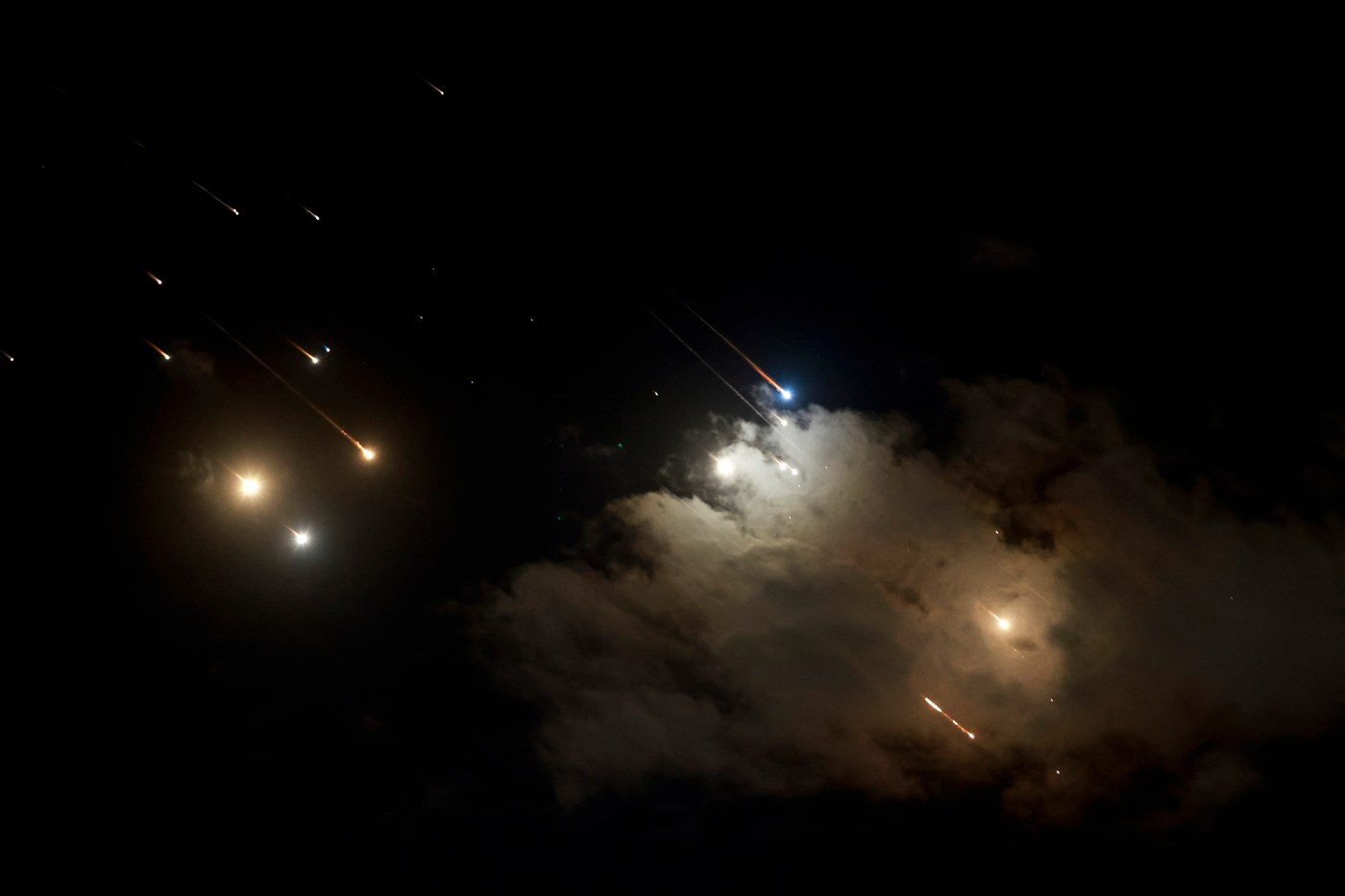
Editorial: Terrifying scenario all too clear in Middle East
What we long have feared has broken out into the open: war raging between Israel and Iran.
No more talk of proxy war, of how the strings of the terrorist groups known as Hamas and Hezbollah were being pulled by their Iranian paymasters, a reality widely contested by naive campus protesters not focusing on the bigger picture.
Now the world has to face Iran shooting missiles directly at the heart of Israel, a nation it loathes and yet one of the United States’ most important allies.
This is perhaps an inevitable outcome of what has been simmering since Hamas terrorists showed up at an Israeli music festival and several kibbutzim and killed most any Israeli they could find. Either that or the terrorists took their prey hostage so as to be able to wage yet more horrors upon their persons and their families. That grievous attack was the first domino, not that any of the players here can agree on where the true beginning lies. But it unleashed new horrors. That we should all agree on.
Tuesday’s shocking events follow the audacious Israeli attacks on Hezbollah, staggeringly effective military operations in Lebanon that first took out many individual fighters by booby-trapping their communications devices and then bombed the group’s leadership, killing Hassan Nasrallah, the powerful secretary-general of Hezbollah, on Sept. 27. Also killed in that attack was Ali Karaki, commander of Hezbollah’s southern front. In a space of little more than a week, The Associated Press reported, at least seven senior Hezbollah commanders have been eliminated in Lebanon.
The AP noted that many of these powerful men had evaded both death and detention not just for years, but in some cases for decades. To say these were extraordinarily successful and surgical operations is to understate. But that success is dangerous for world peace. That’s the paradox with which we must wrestle.
For on Tuesday, Iran struck back, dispatching scores of missiles, many of them ballistic missiles, hurtling toward Israeli cities, including Tel Aviv. Hundreds of sirens went off and thousands of Israelis rushed to bomb shelters. While Israeli media reported no one was killed, there were some direct hits, and news reports cited a Palestinian worker from Gaza being killed by fragments of rockets that fell in Jericho in the West Bank.
Israel still took that barrage as a clear declaration of war by Iran, no room for interpretation, and vowed retaliation.
Iran also rattled its sabers and made clear, not that we doubted it, that it had many more lethal weapons still at its disposal. “Should the Zionist regime dare to respond or commit further acts of malevolence, a subsequent and crushing response will ensue,” Iran’s mission to the United Nations wrote in a deeply unsettling Tuesday night post on the social platform X. “Regional states and the Zionists’ supporters are advised to part ways with the regime,” the post continued, making a clear threat to Israel’s allies.
What now? It is hard to say. Things are out of control and further agony in the region looks inevitable.
This must command the immediate attention of a Biden administration that has paid a price for the politically motivated softness of its support for Israeli efforts to get its hostages out of Gaza, albeit at the massive cost of further suffering for the Palestinian people. By many accounts, the White House has not been much in the loop. And when you are not in the loop, you lose influence at the most important times.
President Joe Biden has a big job left to do.
Chicago Tribune/Tribune News Service
Editorial cartoon by Gary Varvel (Creators Syndicate)


